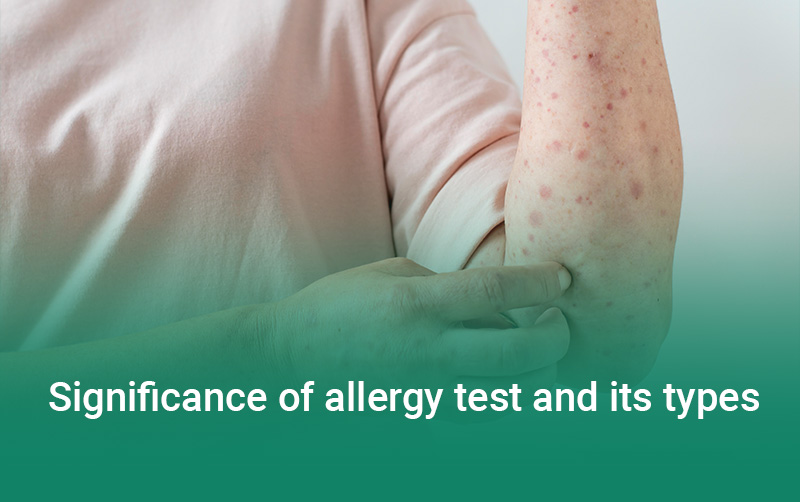The Why’s & How’s of Allergy Tests You May Not Know
Jun 15, 2022
A cleaning spree at home leaves you sneezing, sniffling, and teary eyed for hours. Or, maybe you break into hives after chocolate or seafood? Nasal block or runny nose might make it hard for you to stay outdoors on certain times of the year. All of these are allergy symptoms.
There are a million and more types of allergy and it comes in all shapes and sizes. From allergy to certain food, substances, climatic conditions to even something essential like water, allergies can be the bane of our existence. The only way to know for sure what may be triggering a particular symptom in you is to get allergy tests done.

Why Are Allergy Tests Important?
Allergies are severe reactions by our immune systems to certain triggers. It could show up in many different forms like sneezing, rashes, inflammation among others. This is your body reacting to a substance that does not agree with you.
When an allergic reaction starts, your body produces antibodies to combat it. While some allergies are mild and can pass after a while, other allergies can be crippling and even fatal. It is very important to be aware of what the allergen is. Only then can one fully avoid or take precautions against it. Allergy tests are a way to identify the culprits behind an allergic reaction. They are the first step in the diagnosis and treatment of allergies.
Once identified, the doctor asks the patient to avoid whatever it is that causes the allergy. For example, in case of dust allergy, you may be asked to keep away from such an environment or use a precaution like a mask if it is unavoidable. Your doctor may also prescribe you antihistamines to control mild allergic reactions or an emergency treatment for something more severe.
How is the Test Done?
Allergy testing is done in three ways — a skin prick test, intradermal test and patch test. These are different from each other in terms of the depth at which the possible allergen is administered to the skin.
Skin prick test – A small amount of the potential allergens is placed on the skin, probably the forearm. A small prick is made allowing the allergen to penetrate the skin. The doctor views closely for signs of allergic reaction. It takes 15-20 minutes.
Intradermal test – This test injects the allergen into the skin. The doctor watches for a reaction to determine the correct allergen. It is often tested for bee venom or penicillin.
Patching test – In this test, the possible allergen is taped to the skin for a time period to observe reaction. It usually takes 48 hours to do this test. The skin is observed for reaction upto 96 hours.

The Results and What They Mean
Normal result/ negative result – If there is no allergic reaction — that is, no visible change has occurred — then you are probably not allergic to that substance. This is a negative result.
Abnormal/Positive result – A reaction occurs in your skin and the test area is red and inflamed. The strength of your reaction is gauged by the severity of the reaction. The stronger the reaction, the more sensitive you are to the substance.
These tests are usually accurate. However, false results can show up if the potential allergen is used in large quantities. In large quantities, people who do not have allergies may also show positive.
Trustworthy Allergy Testing in Kolkata at Competitive Costs
The average allergy test cost in Kolkata and elsewhere in India can be upwards of Rs.4000 and up to Rs.8000. At AccuHealth Diagnostics, our affordable allergy test costs in all our branches start at Rs. 2300. Take advantage of our state-of-the-art lab facilities and commitment towards your health today!



